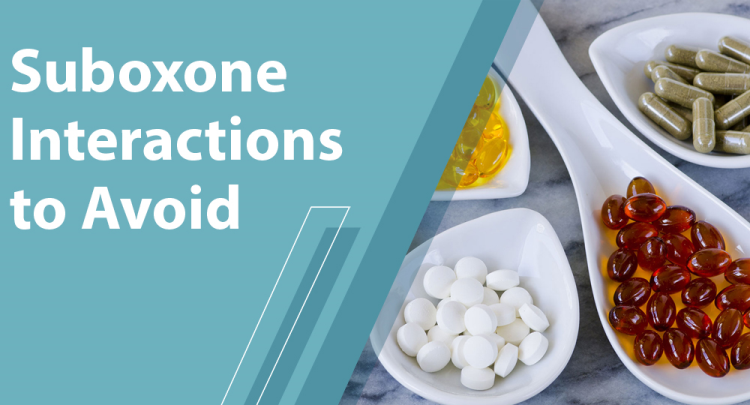
According to Drugs.com and US National Library of Medicine National Institutes of Health, clinicians recognize more than 1,000 drugs as having the potential for moderate or severe negative interactions with Suboxone.
Suboxone itself is a central nervous system depressant, and using it in combination with other substances or drugs can either negate or enhance Suboxone's intended effect.
The following drugs or substances are some of the most common or dangerous interactions.
Central nervous system depressants
Benzodiazepines
Examples of benzodiazepines include Valium, Ativan and Xanax, and these drugs depress the central nervous system in a manner similar to Suboxone. The combined effects of both drugs can cause a number of serious adverse reactions, including neurological and coordination problems, loss of consciousness, respiratory failure and death.
Alcohol
Alcohol's interaction is similar to that of benzodiazepines, and it also carries the same risks of respiratory depression, coma, and death.
Alcohol is typically more socially acceptable, widely available, and can be easy for many people to abuse; therefore, it is perhaps the biggest danger to patients taking Suboxone. Additionally, greater numbers of Suboxone users may be unaware of the danger of mixing the two substances.
Central nervous system stimulants
Cocaine
Cocaine cancels out Suboxone in the bloodstream, and this sudden decrease in Suboxone can lead to severe withdrawal symptoms.
Since cocaine opposes Suboxone's effect on the body, the user can't feel the normal response to cocaine. This effect can "trick" the user into thinking they need, or can safely tolerate, more cocaine and may result in overdose.
Adderall
As with cocaine, Adderall opposes Suboxone's effects on the body. Taking the two drugs together inappropriately could lead to severe withdrawals, a dangerous increase or decrease in blood pressure, loss of consciousness, coma, or death.
Some patients with Attention Deficit/Hyperactivity Disorder have a legitimate need to use this drug while they are on a Suboxone schedule. However, a healthcare professional should always closely supervise any patient that takes these two drugs simultaneously.
Reducing the chances of a negative drug interaction
- Let your health care professional know about any medications you take, even over-the-counter products, vitamins or supplements.
- Always follow your medication schedule and dosage instructions exactly.
All content found on the DrugHelpCenters.com Website, including: text, images, audio, or other formats were created for informational purposes only. If you think you may have a medical emergency, call your doctor, go to the emergency department, or call 911 immediately. DrugHelpCenters.com does not recommend or endorse any specific tests, physicians, products, procedures, opinions, or other information that may be mentioned on DrugHelpCenters.com.